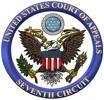Seventh Circuit Week in Review: Racial Discrimination in Jury Selection and Improper Closing Arguments
 The Seventh Circuit had three new opinions in criminal cases last week. The most interesting was United States v. McMath (No. 08-2316), which featured the Seventh Circuit’s most extended discussion to date of Snyder v. Louisana, 128 S. Ct. 1203 (2008). In my view, the Supreme Court’s decision in Snyder represented a real break-through in the Court’s on-again/off-again efforts to eliminate racial bias from the jury-selection process. In McMath (which was, coincidentally, decided on the exact one-year anniversary of Snyder), the Seventh Circuit seemed to recognize the significance of Snyder and awarded the defendant a remand for further consideration of the racial bias issue in the district court. McMath also included an interesting discussion of questionable closing arguments made by the prosecutor.
The Seventh Circuit had three new opinions in criminal cases last week. The most interesting was United States v. McMath (No. 08-2316), which featured the Seventh Circuit’s most extended discussion to date of Snyder v. Louisana, 128 S. Ct. 1203 (2008). In my view, the Supreme Court’s decision in Snyder represented a real break-through in the Court’s on-again/off-again efforts to eliminate racial bias from the jury-selection process. In McMath (which was, coincidentally, decided on the exact one-year anniversary of Snyder), the Seventh Circuit seemed to recognize the significance of Snyder and awarded the defendant a remand for further consideration of the racial bias issue in the district court. McMath also included an interesting discussion of questionable closing arguments made by the prosecutor.
McMath’s jury-selection claim centered on alleged racial bias in the prosecutor’s use of peremptory strikes. In Batson v. Kentucky, of course, the Supreme Court made clear that prosecutors are prohibited from removing potential jurors from a case on account of their race. Here are the relevant facts from McMath:

